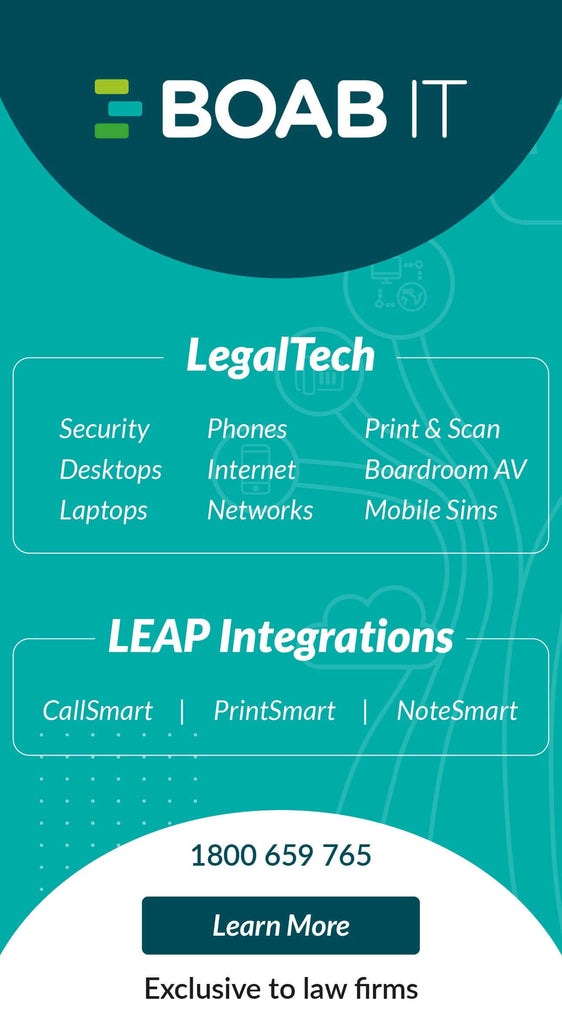
APIs with SaaS Driving Legal Sector Productivity
A prominent technological advancement that is gaining considerable momentum is the integration of Application Programming Interfaces (APIs) with core Software as a Service (SaaS) platforms. The collaborative synergy between APIs and SaaS platforms is reshaping law firms' operational landscapes, equipping them with the necessary tools to excel in an increasingly competitive legal environment.
The legal sector is witnessing a significant technological shift as APIs are emerging as transformative tools, addressing challenges such as long working hours, talent retention and providing top-notch client service.
The Influence of APIs in Law Firms
In the ever-evolving legal industry, the liberation of data through Application Programming Interfaces (APIs) marks a significant leap forward, fulfilling the long-held aspirations of legal technology enthusiasts in driving law firm efficiencies and unlocking the full potential of data, both internal and external data sources.
Acknowledging data as the new cornerstone for strategic decision-making in law firms and legal departments, APIs emerge as indispensable tools. APIs empower law firms to effortlessly access and integrate external data from reliable sources, facilitating real-time analytics reports and trackers across diverse legal domains. APIs also offer the capability to automatically update information as source data evolves, enabling firms to stay agile and well-informed.
Lawtech 365, a pioneering legal tech company, conducted a study underscoring the value proposition of APIs. The study demonstrates potential time savings of up to 40% for legal professionals through task automation, a 30% increase in client satisfaction with 24/7 secure access, and up to a 20% reduction in overhead costs with effective use of practice management and e-discovery tools. Furthermore, legal teams adapting to the latest technologies gain a notable competitive advantage, experiencing a 35% higher success rate in securing new clients compared to their slower-to-adapt counterparts. This underscores the transformative impact of APIs, enabling real-time analytics and automatic information updates, positioning law firms for success and providing tailored solutions for diverse needs and budgets in the evolving legal landscape.
Optimising Law Firm Operations through API Integration with Core SaaS Platforms
- Enhanced Collaboration and Communication: Integrating APIs with core SaaS platforms fosters improved collaboration and communication within law firms. By synchronising data across various applications, legal professionals gain access to real-time information, facilitating seamless collaboration on documents and efficient communication.
- Efficient Case Management: API integration with specialised case management SaaS platforms centralises case-related information, document management, and communication. This streamlined integration minimises manual data entry, optimising workflows and ultimately enhancing the overall efficiency of case management processes.
- Client Relationship Management (CRM): The integration of APIs with CRM SaaS platforms empowers law firms to effectively manage client interactions, track communication history, and gain valuable insights into client preferences. This integration facilitates personalised client engagement, contributing to stronger client relationships.
- Automation of Administrative Tasks: API integration with SaaS platforms enables law firms to automate time-consuming administrative tasks like timekeeping, billing, and invoicing. This automation not only saves time but also reduces the risk of errors associated with manual data entry.
- Data Security and Compliance: Ensuring security and compliance is imperative in the legal industry. API integration with SaaS platforms ensures secure transfer and storage of sensitive client information, enabling law firms to adhere to data protection regulations through robust security measures.
- Customised Reporting and Analytics: APIs integrated with SaaS platforms empower law firms to develop customised reporting and analytics tools. These tools provide valuable insights into case performance, resource utilisation, and overall firm efficiency, enabling data-driven decision-making.
- Remote Accessibility: API integration with SaaS platforms facilitates remote accessibility, allowing legal professionals to work from anywhere with an internet connection. This capability has become particularly crucial in the current era of remote and hybrid work models.
- Scalability and Flexibility: APIs and SaaS platforms' modular nature grants law firms scalability and flexibility. As the firm grows or encounters changing requirements, it can seamlessly integrate new tools or functionalities through APIs without the need for extensive redevelopment.
As the legal industry continues its evolution, the adoption of API integration with SaaS platforms emerges as a pivotal element of success for law firms aspiring to remain competitive and provide exceptional legal services.
Author: Varun Bhatia, Co-Founder of 3NServe.

Also read top viewed Ai Legal article: The Role of AI in Legal Research.
Subscribe to the Legal Practice Intelligence fortnightly eBulletin. Follow the links to access more articles related to the business of law and legal technology.
Disclaimer: The views and opinions expressed in this article do not necessarily reflect the official policy or position of Novum Learning or Legal Practice Intelligence (LPI). While every attempt has been made to ensure that the information in this article has been obtained from reliable sources, neither Novum Learning or LPI nor the author is responsible for any errors or omissions, or for the results obtained from the use of this information, as the content published here is for information purposes only. The article does not constitute a comprehensive or complete statement of the matters discussed or the law relating thereto and does not constitute professional and/or financial advice.





